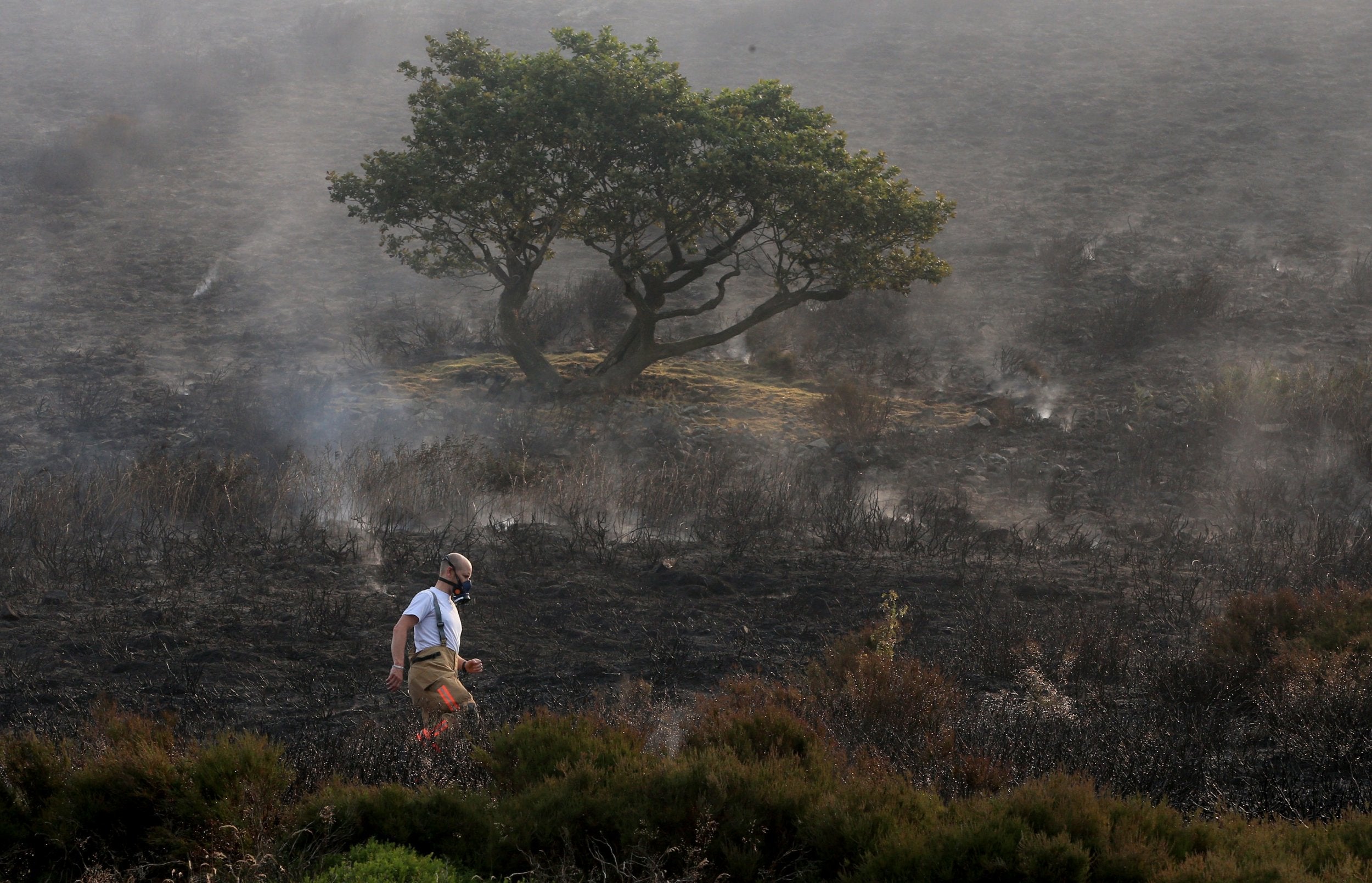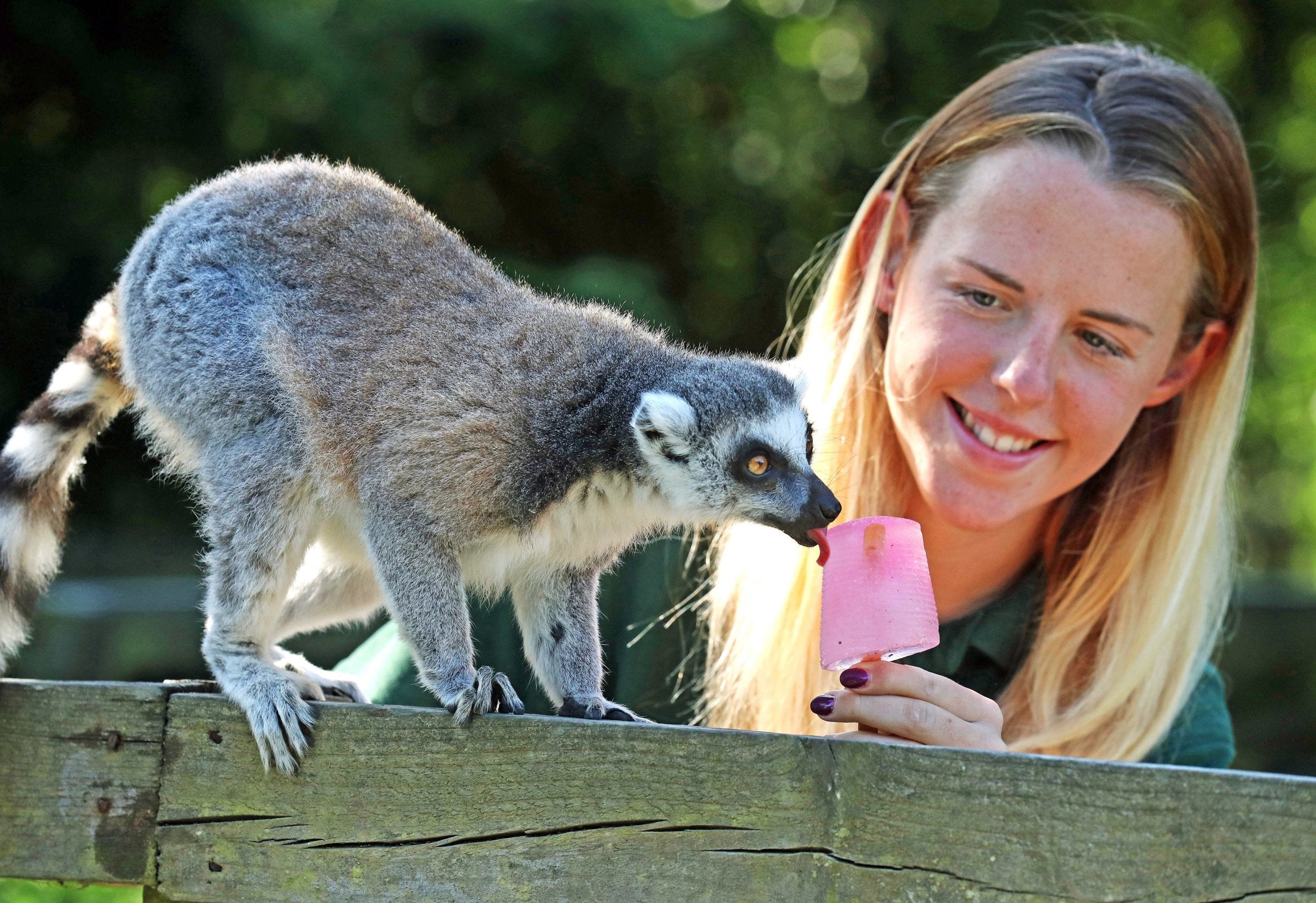UK heatwave: More wildfires and food shortages loom as temperatures soar
In some areas grass has stopped growing and crops are ripening too early while milk yields and animals’ winter food supplies are at risk
Your support helps us to tell the story
From reproductive rights to climate change to Big Tech, The Independent is on the ground when the story is developing. Whether it's investigating the financials of Elon Musk's pro-Trump PAC or producing our latest documentary, 'The A Word', which shines a light on the American women fighting for reproductive rights, we know how important it is to parse out the facts from the messaging.
At such a critical moment in US history, we need reporters on the ground. Your donation allows us to keep sending journalists to speak to both sides of the story.
The Independent is trusted by Americans across the entire political spectrum. And unlike many other quality news outlets, we choose not to lock Americans out of our reporting and analysis with paywalls. We believe quality journalism should be available to everyone, paid for by those who can afford it.
Your support makes all the difference.The sun has got his hat on, and has no plans to take it off again.
Almost two weeks into a heatwave which has sent temperatures soaring into the thirties across all four UK nations, forecasters predict conditions could remain similar for another fortnight.
While for many people it is a chance to luxuriate with little more to worry about (at the moment) than the threat of a hosepipe ban, for others the dry spell is causing major problems.
The most visible of these have been the wildfires across Saddleworth Moor in Tameside, and Winter Hill near Bolton, but fires have now also broken out across Wales, which has seen some of the highest temperatures anywhere in the UK. With little rain forecast, there is concern fire crews will be unable to put a stop to blazes in some areas.
Farmers are becoming anxious about the impact of the heat on crops and livestock. It could be a bad summer for dairy farmers, with the National Farmers Union (NFU) warning that in many areas the grass has stopped growing, crops are ripening too early and milk yields and animals’ winter food supplies could be hit.
In addition, wildlife charities are calling on the public to take action to help the UK’s small mammals, birds and insects – all already facing major threats – by helping to provide water sources and maintaining damp habitats.
Earlier this week farmers warned of lettuce, cauliflower and broccoli shortages if there wasn’t enough water to keep irrigation levels up.
The British Leafy Salad Association said the heat was wreaking “havoc” on harvests.
Elsewhere, fish are being threatened by falling water levels as rivers and streams run perilously low.
In Herefordshire the Environment Agency passed electrical currents through part of the River Teme in order to stun more than 130 trout and salmon, allowing them to move them downstream to deeper waters.
And in Ireland, anglers have been asked to avoid using “keep nets” during the hot weather so they do not distress or accidentally kill fish they are planning to release.
In Wales the dry weather has already begun to have a direct impact on farmers.
Dylan Morgan, head of policy at NFU Cymru, told The Independent: “It’s probably the last 10 days or so it’s begun to hit Wales after the severe heat of last week. The ground is so dry now that the grass is not growing.
“It means there’s less fodder available to cattle. Quite a few farmers are having to use their winter supplies to keep their animals going to make sure they’re continuing to produce milk.
“The main concern for everyone is the welfare of their animals and making sure they’ve got supplies of fresh water. But we’ve got some streams and wells and boreholes drying up that we haven’t seen dry up since 1976,” he said.
“We hope mother nature comes to our rescue and as summer goes on that we see a more normal period so we can try and make up for some of this.”
Meanwhile, arable crops are also short of water, resulting in them ripening earlier. “The harvest hasn’t quite started yet, but with the water stress on those crops, if this continues there is concern we’ll see lower yields,” Mr Morgan added.

The RSPB has warned that robins, blue tits and blackbirds could be left without anything to drink as their normal water sources dry up, and that some birds that nest on the ground will be at risk from the wildfires.
The organisation has called on the public to top up bird baths or put out small amounts of water into gardens to provide a lifeline for birds.
Martin Fowlie of the RSPB told The Independent: “A lot of the places birds go to get water are drying up. That will have an effect over time. There are lots of young birds fledging the nest. It’s too early to know what the long term effects will be, but that could affect the survival rate for young birds leaving the nest.
“We know that for some species like house martins, which use mud to build their nests in the eves of buildings, hot, high temperatures can mean that some of those nests can get really dry and start to crack and come apart.
“In the normal scheme of things, birds will bounce back, but more generally, birds are having a difficult time across the board and this is just another difficulty with which they have to contend.”
But the dry sunny weather also means butterflies are having a good year, Mr Fowlie said, with the RSPB recording its first ever purple emperor butterfly at a reserve in Bedfordshire.
“But the picture overall in the UK isn’t good. We had a very cold winter and late spring, followed by a scorcher over the last two or three weeks. It will be interesting to see how nature copes.”
Sylvia Myers of the London Wildlife Trust said the hot weather would also have a profound effect on amphibians.
“The animals really suffering are going to be those that rely on a damp habitat. So frogs and toads and newts. Ponds are drying up and also they eat slugs and snails and other creatures that like damp habitats. They can’t go foraging so much on what would normally be damp nights. So they’ll be suffering from lack of food and cool, damp places to hide.”
She said these animals would benefit from people leaving ground-level leafy areas undisturbed with logs lying around, as well as providing water sources for mammals, birds and insects.
“Even bees need to drink, they don’t get all their liquid from flowers, so having some water out for them could be really beneficial,” she said.
But she added that butterflies and other insects that don’t have an aquatic stage in their life cycle, such as grasshoppers and crane flies, are currently benefiting from the dry spell.
Dr Kate Lewthwaite from the conservation team at the Woodland Trust told The Independent the organisation had seen some evidence of trees wilting as a result of water stress.
“But trees’ roots extend far and wide and deep, so of all plants, they are better equipped to cope with drought and can access water in places that other plants can’t,” she said.
“However, the heat can make trees more susceptible to other pests and diseases. One example is that mildew which grows on oak, which is normally harmless, keeps the stomata – the pores on the leaves – open, and in a drought situation the trees response is to close the stomata, but if it’s got a mildew infection then it can’t, so it will lose more water.
“In warm weather you can get early fruiting, but if there’s a water shortage it can be rather shrivelled and trees may even abort their fruit – drop it – if the weather continues to be dry, which can have a knock-on impact on wildlife.”
Some species, such as beech, have shallow roots in UK varieties, and in the southeast they tend to grow on free-draining calcareous (chalky) soils, and they can act as a bellwether for looming problems, Dr Lewthwaite added.

The WWF called for urgent action to reduce the effects of climate change and the extreme weather events, such as heatwaves, associated with it.
Dr Mike Barrett, executive director of science and conservation at WWF told The Independent: “Climate change can make extreme events such as heatwaves more likely – we know it’s one of the greatest threats to nature across the world.
“As weather patterns become more extreme, some natural places will change, forcing wildlife to adapt or move to survive.”
He added: “To stop this, we urgently need to cut our carbon emissions in line with the Paris climate agreement. Tackling climate change is essential if we are to halt the decline of, and restore, our natural world.”
Water companies across the UK are seeing increased demand for water amid high temperatures, but have benefited from a wet spring, meaning there is no major alarm over supplies running out yet. Instead they have called for people to conserve water.
“While we are not in a situation where we think we are going to run out of water, it is a case of treating it and pumping it through our pipes quick enough to get it to the people using it.
“We are asking people to limit usage as much as they can – not washing cars or using sprinklers or hoses to water plants, rather than putting formal restrictions in place,” Thames Water’s Becky Trotman told The Independent.
Southern Water said it is not in drought restrictions and has enough water for everyday use. The company is currently supplying an extra 100 million litres a day more across the region than at this time last year – enough to fill 11 million watering cans.
Ben Earl, water efficiency manager at Southern Water, said: “Water is a precious resource and it’s important that we all do what we can to reduce wastage, come rain or shine.
“Our customers are already among the most water efficient in the country but there are simple things you can do to reduce waste – and cut your water bill.
“In the heatwave, people should be neighbourly – preserve supplies by not using sprinklers as brown lawns recover quickly.
“Dirty cars are cool in a heatwave,” he added.

Join our commenting forum
Join thought-provoking conversations, follow other Independent readers and see their replies
Comments